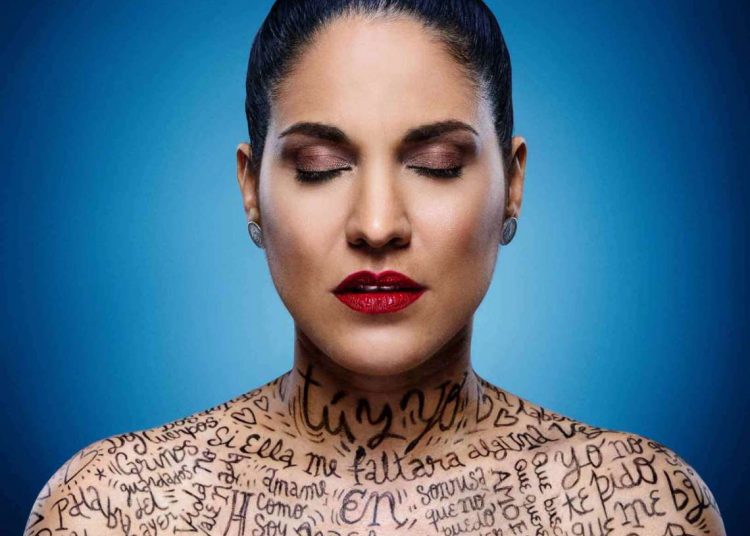Haydée Milanés is one of the most versatile musicians of her generation. She is sitting in her living room at home in the Havana municipality of Nuevo Vedado. She’s dressed completely in black wearing a T-shirt with the Russian cartoon characters Bolek and Lolek, so beloved by those born in the ’80s. Next to her is her husband and manager, photographer Alejandro Gutiérrez. They’ve just finished filming some video clips requested by the iTunes platform as promotional material for her new album, Amor Deluxe.
We begin our conversation and right away she talks about her father, Pablo Milanés, founder of the Cuban nueva trova (also known as the New Song Movement) and an indispensable singer-songwriter for several generations of Cubans. “I especially remember one afternoon. I sang very softly,” she says, “and I was very shy. I was afraid to sing. We were at a party at my dad’s house with a lot of important musicians. There was a piano player and my dad asked me to sing a song. Then he came up to me in front of everyone to tell me to project my voice, as if he thought nobody was watching us. It was hard, but it taught me a lesson.”
Haydée is in full promotional mode for Amor Deluxe. It’s the second album she has recorded of her father’s songs. It’s a double album that includes the album Amor, which she premiered with him to a full house at a concert at the Karl Marx Theater in Havana. On the album with 16 tracks, there are collaborations with a plethora of top European and Latin American musicians: Joaquín Sabina, Chico Buarque, Lila Downs, Fito Páez, Silvia Pérez Cruz, Pancho Céspedes, Julieta Venegas, Ibeyi. Several of them watched her grow up from a little girl to the excellent performer and composer she is today.

Together with these internationally recognizable artists, the album includes a selection of songs from different time periods and across a diverse musical range, with elements of son, rumba, rock, and trova. “It’s a great opportunity to introduce younger generations to my father’s songs and to reach young people,” she says. The album premiered on May 30th at a concert at the Lunario de México and will be produced in Cuba by the Bis Music label.
She recalls one track in particular, for its emotional and symbolic significance: “I had sent two songs to Chico [Buarque] to choose from. Then he told me to give him another option. ‘The ones you sent me make me very sad,’ he confessed. So I asked my father what he thought would work best for Chico and without hesitating he said, ‘Todos los ojos te miran.’”
The response could not have been better: the Brazilian felt that the song resonated within him. “He was crazy about the song and he said, ‘That song is mine.’ It was magical,” Haydée remembers, while revealing that Chico would like to sing in Cuba and that she’d like to help organize that potential concert.
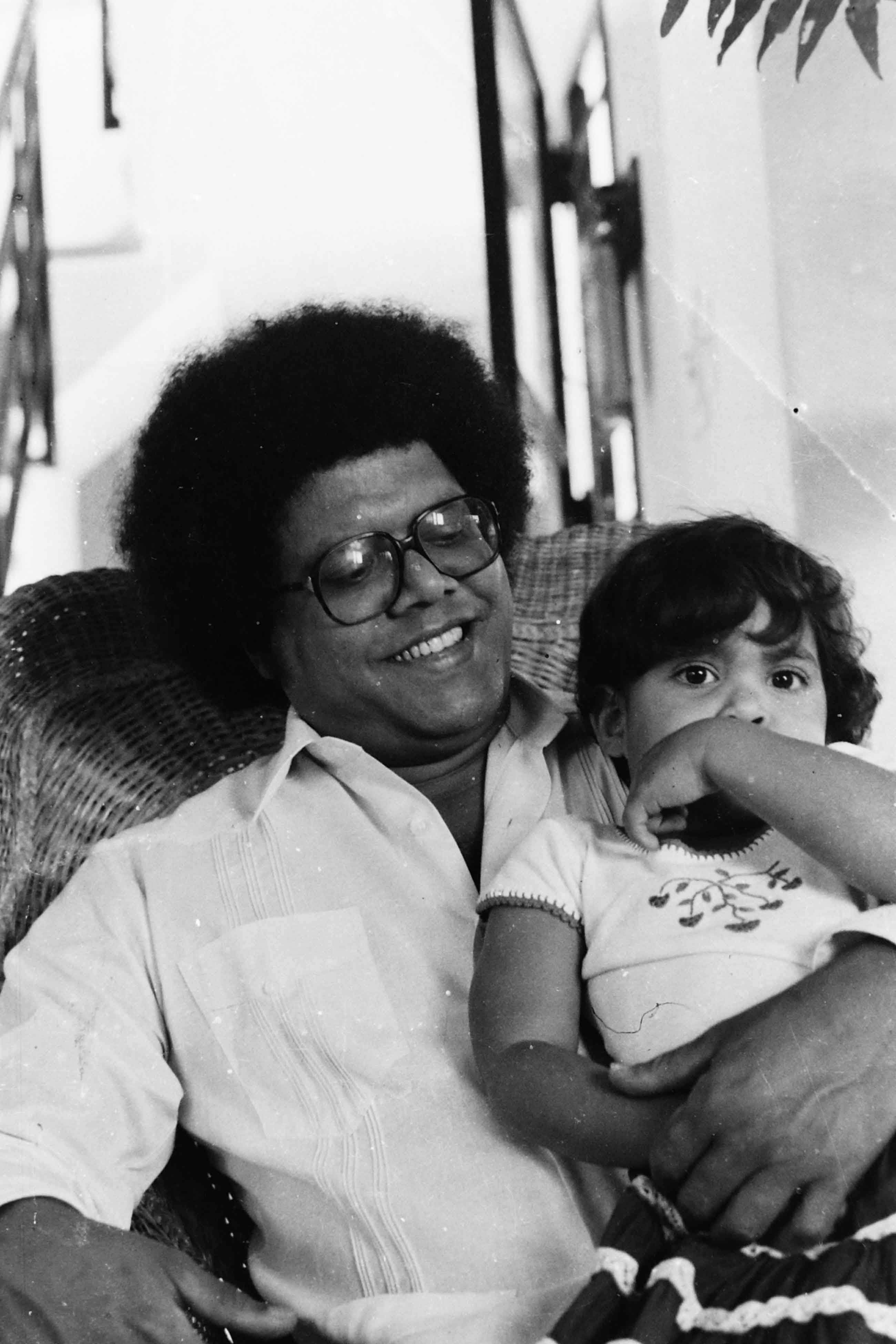
Cuban and Brazilian music occupy a place of honor in the soundtrack of her life. “I sing music that moves me. Harmoniously and melodically rich music with rhythm, like Cuban music, for example —Miguelito Cuní, Cotán, El Albino— or the cadence of Brazilian music that I heard as a child, by Elis Regina, Gilberto Gil, and Chico Buarque himself.”
For some years, the singer has been part of the catalog of the independent Mexican label Casete Digital. She explains that she chose this platform because she’s not interested in complying with the impositions of some major labels.
“The international music labels ask you to remove a song, or incorporate another. The freedom that Casete gives me…. is one of the reasons why I work with them. I’m not interested in being told what to do, but I can accept suggestions. However, I feel that the big labels are becoming more open about this kind of thing. Sony is signing very interesting artists who don’t have a massive following. They’re opening up a bit when it comes to artists making their music.”
The founder of the electronic music project Instituto Mexicano del Sonido, Camilo Lara, has played a key role in Haydée’s creative trajectory. He was a director at EMI when she released her first record with that label. When Lara turned his sights to independent production in 2014, he called her to propose that they work together. That’s how their collaboration began.
It’s nearly 3pm and the singer’s daughter —little Haydée, age 6—comes closer to listen to the conversation with an overflowing curiosity. She plays with her little one’s curls, and Alejandro calls little Haydée to the table and gives her some crayons to color with. The girl sits down, plays a bit with the crayons and then flutters around the house. Haydée laughs and says that her daughter reminds her of herself as a child. “I was always playing hide and seek, climbing trees, or running around. I was very mischievous. It seems she got that from me,” she jokes.
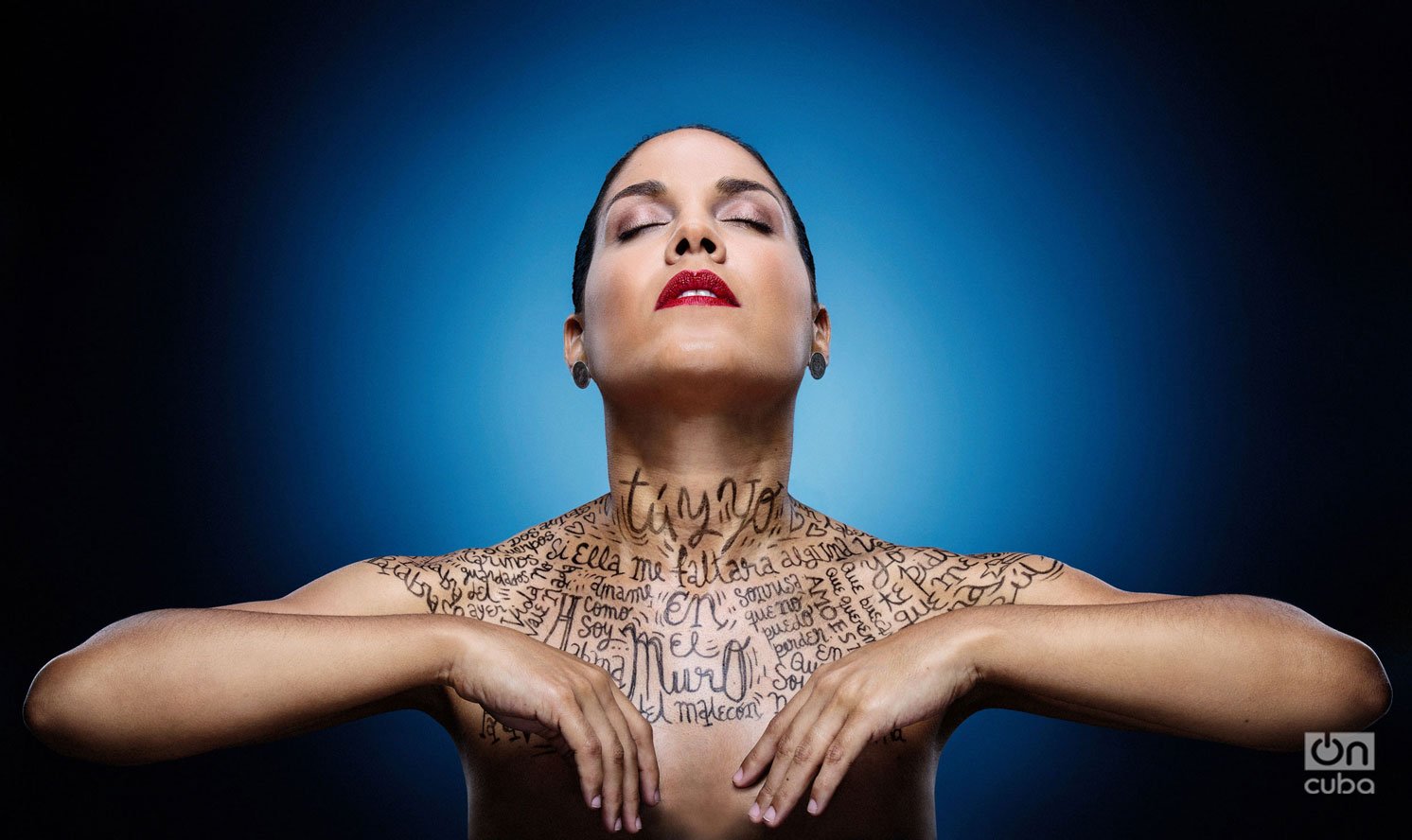
Haydée says that being a mother has changed her life and opened new horizons in her perceptions of reality. “Motherhood is the most beautiful thing that has happened to me. It is the greatest love in the world, the greatest happiness. It has also been my greatest lesson. Through our children we learn a lot about ourselves, our limitations, our prejudices and fears. We teach them, but our children are constantly teaching us. They teach us to play again, to be purer. They also make us more responsible. It’s a very interesting process. I enjoy it very much.”
At 38, the singer says that her main fear is to not feel afraid. “Nerves always do their thing. It’s the commitment with the need to do a good job. People who’ve been on the stage for a long time tell me that the fear never goes away. I prefer to feel those butterflies in my stomach because it helps you do your best. If I didn’t feel them, I’d be worried.”
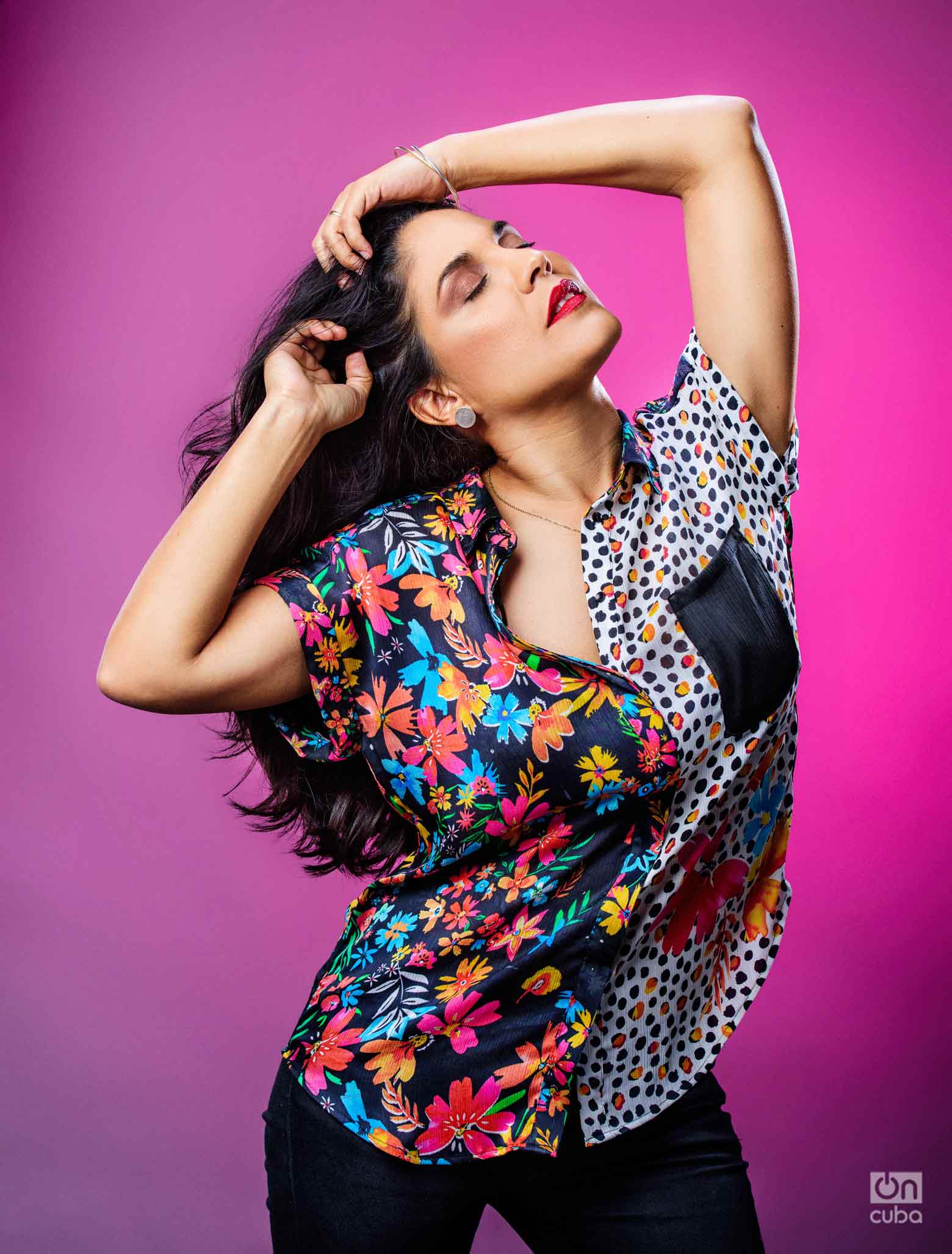
She has produced six albums: Haydée, Haydée Milanés en vivo, A la felicidad, Palabras, Palabras en vivo and Amor, and has broad national and international recognition. It hasn’t been easy to stay on that path without making concessions, she says, and she has even gone through tough economic situations to defend the work she believes in.
“This is the path I’ve chosen. I don’t make music that doesn’t convince me or that has a different projection than mine. Artists must be consistent with themselves, not with the labels, and even before pleasing the public I have to feel good about myself. This is a more certain path, even if it doesn’t lead to selling millions of albums, it does allow you to have a loyal following, which is very important,” she says.
She gives the duos in Amor Deluxe as an example. “I feel that I’ve earned respect with my work and perseverance. I don’t think any of these great musicians have come to sing with me because I’m Pablo’s daughter, but because they know the fruit of my work,” says the singer, who was recently selected by The New Yorker magazine as one of the five best jazz performers in Cuba.
Being the leader of her own band has led her to rise above the prejudices of the deeply rooted macho tradition on the island. “Being a woman is always a challenge, in any field. Women have gradually come to occupy their rightful place. In my case, I lead a group of men, and that can sometimes be a bit tricky for some men who still find it difficult for a woman to lead or guide them. But these are things that one learns to deal with, they don’t go away from one day to the next. There are many issues that we’re not aware of, even as women. We must be very clear that we have to love and respect ourselves, and also among ourselves. You also have to train and study, because as a woman, you have to prove many things. And even more so if you’re the daughter of a celebrity,” she jokes.
She becomes emotional when she watches a Cuban series or movie with her father’s music. She gets a strange feeling that runs through her body and that goes from pain to nostalgia and nostalgia to pain.
“Those were beautiful years. Ugly things happened, too, and big mistakes were made. I was born in the year 1980 and I have beautiful memories of what things were like. I get nostalgic and sad that this country hasn’t been able to find a better direction. There was the chance to do it, there was the material to build it, and we lost opportunities. But now what we need is for Cubans to finally prosper.”
Silvio Rodríguez and Pablo Milanés were a quintessential Cuban musical duo, but they haven’t performed together in over 30 years. Personal issues distanced them. Haydée, nevertheless, is optimistic that they’ll once again put on concerts together. She believes it could be a turning point in the Cuban music scene, that it could influence the musical consumption of some young people. “If that happened, it would be like going back to that time. We would live an incredible moment, as a recognition of all that music that we grew up with.” A few weeks ago she gave a concert at the National Museum of Fine Arts and played songs by her father, Silvio, Carlos Varela, and Santiago Feliú, among others.
“They were protagonists during intense moments in Cuban music. They made an incredible duo that produced magic. [At that concert] I sang ‘Óleo de una mujer con sombrero’ (by Silvio Rodríguez), and I imagined my dad backing me up on vocals. He used to do it wonderfully. They were a duo like Simon and Garfunkel,” she says.
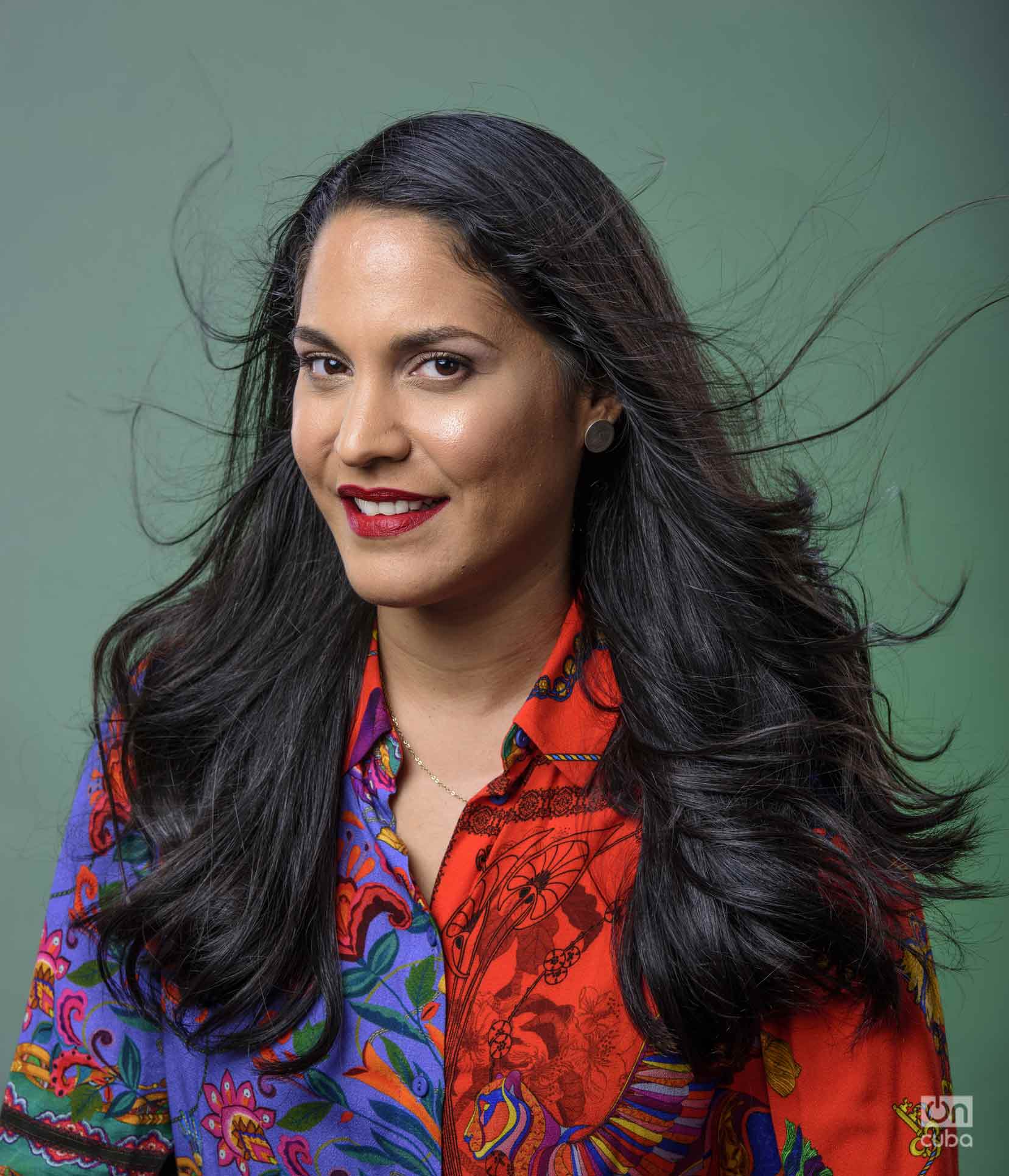
The singer talks with her fans at every concert, and agrees to take pictures with them. She even affectionately receives those who manage to cross security in order to greet her.
The singer of “Libélula” says that she needs public affection in order to breathe, and she likes to know what people are thinking. “I don’t like to go on stage as a star. Being a public figure doesn’t mean that you must see people from afar. People deserve the love and closeness that I also need.”
This interview was published in 53rd Edition of OnCuba Travel Magazine

